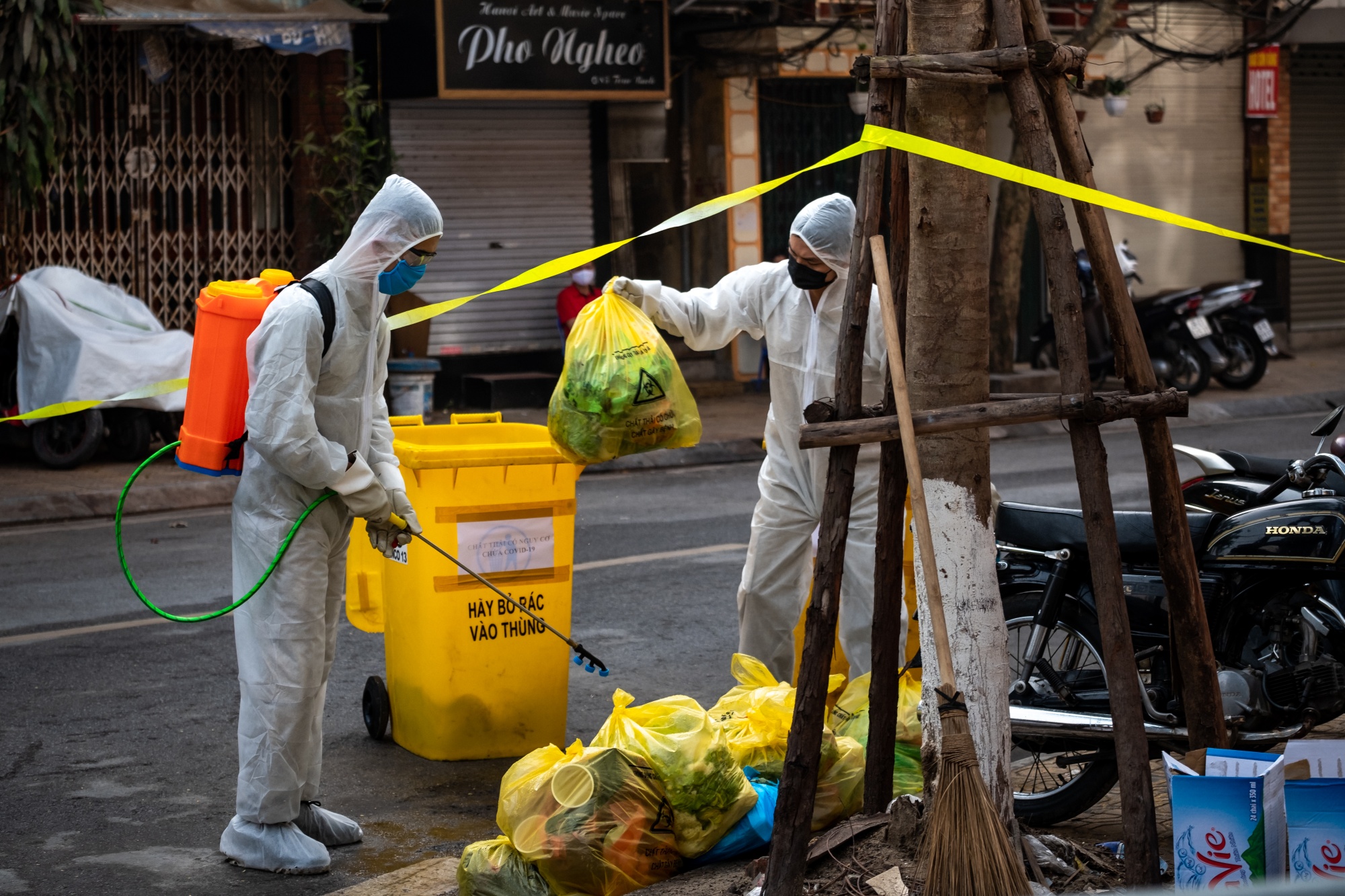Starting With Safety: Why Proper Disposal Of Biohazard Waste Matters
Biohazard waste disposal is a duty. It protects our families, communities, and the environment. But what exactly is biohazard waste? In simple terms, biohazard waste is any material that may contain infectious substances. It could threaten public health. These include everything from medical and lab waste to waste from crime or trauma scenes. Properly handling and disposing of this waste is essential. It prevents the spread of dangerous diseases and contaminants.
In this guide, you’ll walk through the steps for safely handling and disposing of biohazard waste. You'll cover it all, find biohazard-cleaning services, and select decontamination ones. You'll also learn about the different levels of decontamination cleaning. This will help you make informed decisions.
What Exactly Is Biohazard Waste?
Biohazard waste comes in many forms, and each type requires unique disposal methods. Generally, biohazard waste includes any waste materials contaminated with potentially harmful biological substances. Some common examples include:
- Medical Waste: Contaminated items, like needles, syringes, and bandages.
- Laboratory Waste: Cultures, specimens, and lab equipment used in biological testing.
- Trauma Scene Waste: Blood or other biofluids from accidents, crime scenes, or death cleanup.
- Human or Animal Waste: Biological materials from hospitals, clinics, or animal care facilities.
Improper waste disposal can harm the environment and spread diseases. It can also hurt sanitation workers who unknowingly touch it.
Recognizing The Right Services: What To Look For In A Biohazard Cleaning Provider
Biohazard disposal is specialized. It's crucial to choose a company that can manage the waste from start to finish. When looking for biohazard-cleaning-services, here are key factors to consider:
- Certification & Licensing: Ensure the provider has the required licenses and certifications. Proper decontamination cleaning services should follow stringent protocols.
- Training & Expertise: The cleanup crew must have extensive training in biohazard work. They must know how to handle, contain, and dispose of it.
- Compliance: Check for compliance with local and national regulations for biohazard waste handling.
- Safety Measures: Safety must be a top priority. Use PPE and advanced decontamination methods.
Biohazard decontamination companies must exceed all safety regulations and protocols. This helps to ensure that the waste is handled with precision, protecting you and your community.
Biohazard Waste Types And Their Disposal Methods
Different types of biohazard waste require different disposal strategies. Let’s break down some of the main categories and methods used in the industry:
| Type of Biohazard Waste | Description | Disposal Method |
| Sharps | Needles, syringes, and other sharp medical tools | Incineration or steam sterilization |
| Pathological Waste | Human tissues, organs, body parts | Incineration |
| Infectious Waste | Blood, body fluids, or other materials with pathogens | Chemical treatment or autoclaving |
| Pharmaceutical Waste | Expired medications, contaminated items | Special treatment, often incineration |
| Laboratory Waste | Cultures, specimens, lab tools | High-temperature incineration |
| General Medical Waste | Non-infectious items (gloves, gowns, masks) | Steam sterilization, then landfill disposal |
Steps For Safe Biohazard Waste Disposal
Disposing of biohazard waste may seem overwhelming, but it can be easily managed with the right approach. Here’s a breakdown of the steps:
1. Segregation Of Waste
The first step in safe biohazard waste disposal is separating waste at its source. It’s critical to differentiate between hazardous and non-hazardous waste and place them in the right containers. Here are a few tips:
- Color-coded bins are often used, such as red for biohazard waste and yellow for sharps.
- Separate materials based on their type to avoid contamination and streamline disposal.
2. Proper Storage And Handling
Biohazard waste should be stored in sealed, clearly labeled containers. Make containers puncture-resistant. For sharps, prevent all accidental exposure. Providers of bio-decontamination services often supply these specialized containers. This helps those working in clinical or lab settings.
3. Transportation And Disposal
Transporting biohazard waste requires adherence to strict protocols. Decontamination companies know that vehicles must be sanitized and marked with biohazard signs. They also need permits. Biohazard materials are often treated as hazardous substances during transport. For personal transportation of small amounts (like from a home), it’s best to consult local regulations.
4. Treatment And Disposal Options
Treatment methods vary, but the most common ones include:
- Incineration: Effective for pathological waste.
- Autoclaving: Uses steam to sterilize waste, making it safe for disposal.
- Chemical Disinfection: Common for liquid biohazard waste.
Professional decontamination cleaning services will often handle these steps. They will also provide a disposal certificate for compliance tracking.

Why Choose Bio Decontamination Services For Your Biohazard Waste?
The truth is, that many biohazard waste types require specific treatments that aren’t accessible or manageable for most people. That’s why working with bio-decontamination services can make a huge difference. Here’s how:
- Expert Knowledge: These professionals are trained to deal with hazardous waste safely.
- Efficient Disposal: They have the right equipment, like autoclaves and incinerators, for decontamination.
- Environmental Responsibility: Certified decontamination services ensure eco-friendly waste disposal.
Practical Tips For Individuals Handling Biohazard Waste At Home
Whether it’s for medical waste at home or another form of biohazard, here’s a simplified process anyone can use:
- Wear Gloves and a Mask: Minimize contact and protect yourself.
- Use Designated Containers: Always use sealable bags and bins labeled as biohazard waste.
- Follow Local Guidelines: Many areas have waste disposal rules. So, check with local authorities.
If the waste is beyond what you can safely manage, it’s best to contact professionals.
What Happens If Biohazard Waste Isn’t Properly Disposed Of?
Improper disposal of biohazard waste can lead to severe consequences. Some of the risks include:
- Health Hazards: Pathogens in waste can spread infections.
- Environmental Damage: Waste can contaminate soil, water, and air.
- Legal Penalties: Many regions have strict laws, and violating these can result in fines.
Taking shortcuts with biohazard disposal isn’t worth the risk. Relying on biohazard-cleaning services ensures you’re doing your part to keep your community and the planet safe.
Going The Extra Mile: The Importance Of Regular Decontamination
Routine decontamination can minimize biohazard exposure. Many decontamination services offer scheduled visits to clean high-risk areas. This includes:
- Wipe-Downs of Surfaces: Using EPA-approved disinfectants.
- Air Quality Checks: Ensuring there are no airborne pathogens.
- Waste Management Audits: Ensuring proper segregation and storage of biohazard waste.
A regular cleaning and decontamination schedule is vital. It is especially so for areas often exposed to biohazards.
Final Thoughts On Managing Biohazard Waste Responsibly
Handling biohazard waste is our responsibility to protect public health and the environment. Choosing reputable biohazard-cleaning services and proper decontamination is key. Safe disposal practices can make a big difference.
If you’re unsure how to handle a specific type of waste, consult with professional decontamination cleaning services. These experts can guide you through the best practices and provide safe disposal options. Taking small steps today can make a big impact on a healthier, safer tomorrow.


